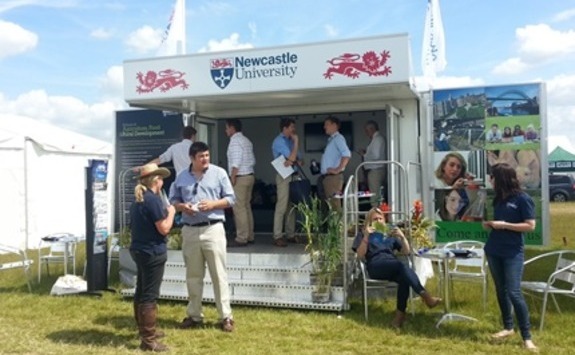Co-production, knowledge exchange and expertise
Academics are not the only source of expertise informing rural policy and practice.
Our aspiration
The aspiration of CRE is not just for more science or expertise.
We want better informed and skilled citizens and communities. Through their expertise they can tackle their own problems. They can learn more efficiently from elsewhere.
This process itself provides a rich source of material for research. We begin to map the ways we can achieve these aims most effectively.
Projects
Landbridge: A Knowledge Exchange Network for Rural Professionals - Funding: ESRC (ongoing) - Project team: Prof Jeremy Phillipson, Dr Amy Proctor, Anne Liddon, Prof Philip Low
Knowledge Exchange Seminar Series (KESS) between Newcastle University and local councils (ongoing) - CRE input: Prof Sally Shortall working with the Policy Academy.
ESRC Knowledge Transfer Research Fellow - Funding: Economic and Social Research Council (2008-2009) - Prof Sally Shortall seconded to the Department of Agriculture and Rural Development Northern Ireland.
Knowledge Exchange Seminar Series (KESS) between the Northern Ireland Universities and the devolved government (2011-ongoing) - Prof Sally Shortall established the KESS with Eileen Regan, Research Services Northern Ireland Assembly.
Centre for Evaluation of Complexity Across the Nexus (CECAN) - Funders: ESRC (2016-2018) - CRE input: Prof Jeremy Phillipson, Dr Amy Proctor, Fran Rowe, Anne Liddon
DEFRA Sustainable Intensification Platform - Funder: Defra, Welsh Government (2015-2017) - CRE input: Prof Jeremy Phillipson, Dr Amy Proctor, Anne Liddon
Voices of Veterinary Experience - Funding from ESRC Impact Accelerator Fund (2016-2017) - CRE input: PI Prof Mark Reed, project team: Sue Bradley, Prof Philip Lowe
Science in the Field: Understanding the Changing Role of Expertise in the Rural Economy - Funders: ESRC (2008-2011) - CRE input: PI Prof Jeremy Phillipson, Dr Andrew Donaldson, Prof Philip Lowe, Dr Amy Proctor
The Rural Economy and Land Use Programme (RELU) - Funding: UK Research Council, DEFRA, Scottish Government, (2004-2013) - CRE input: Director’s Office team comprising Prof Philip Lowe, Prof Jeremy Phillipson, Anne Liddon
